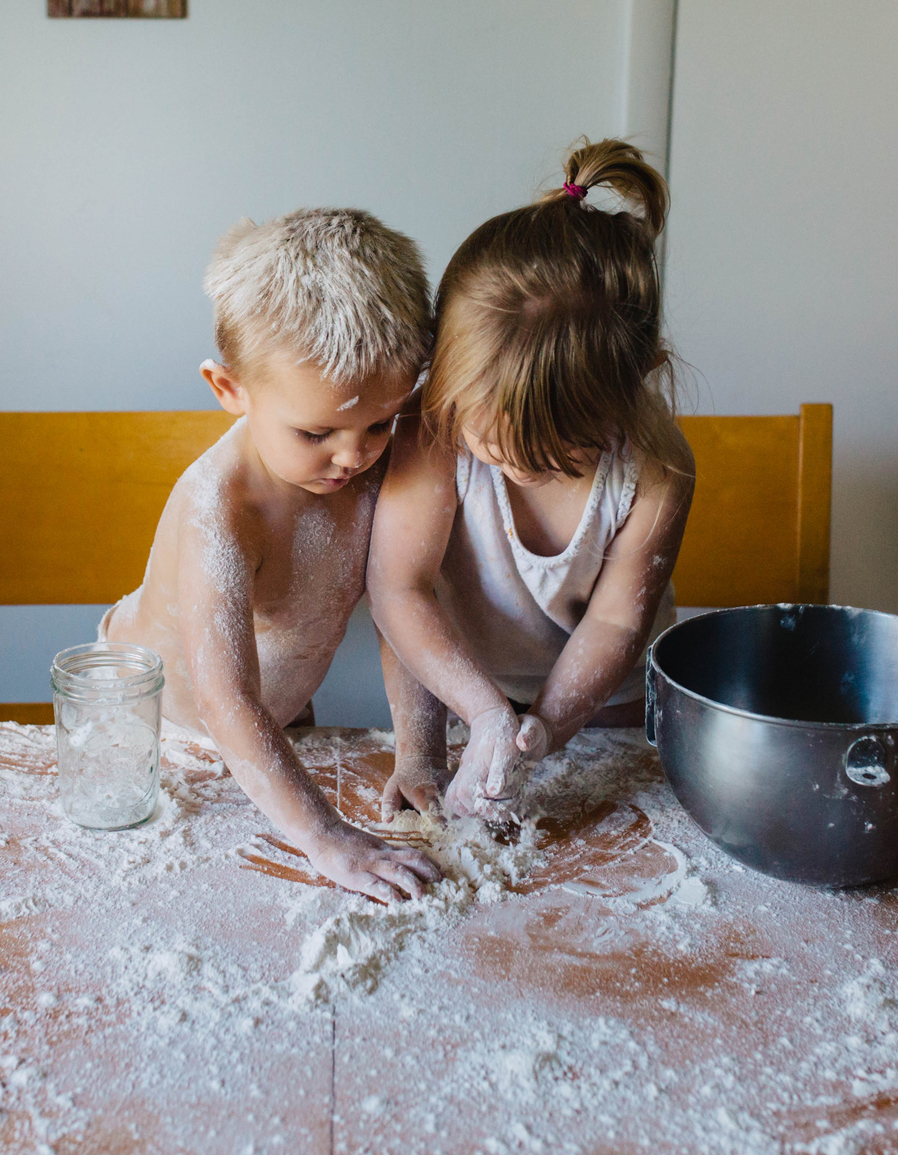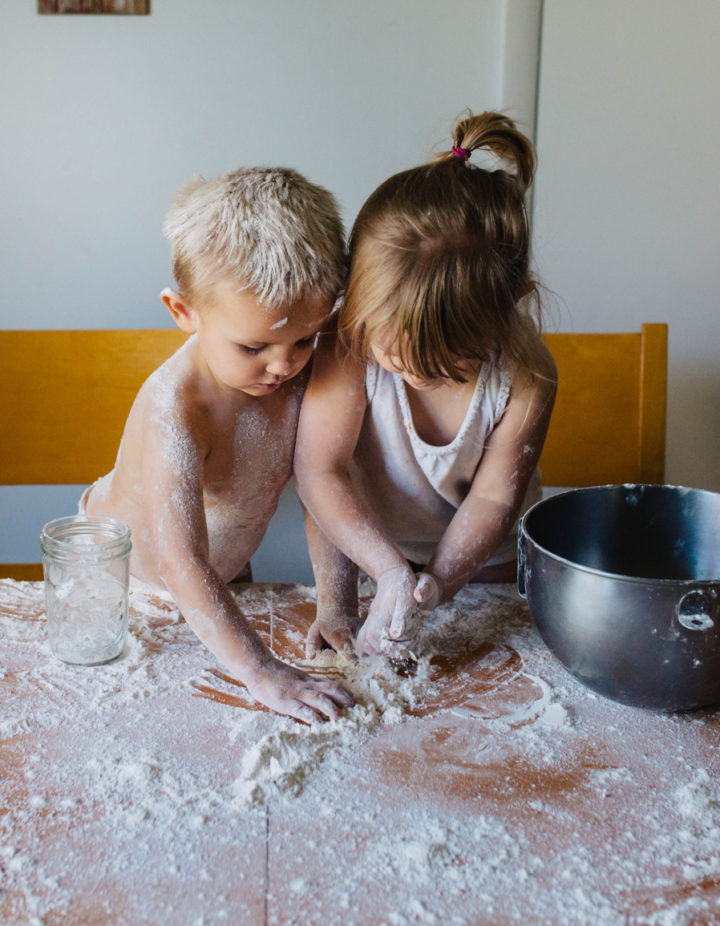This article was written in partnership with our friends at Cooper, a membership community for caregivers that offers monthly small group discussions and one-on-one client work all based on the science of early childhood development.
We know from a wealth of child development research that a child’s sense of belonging is very important to their overall development. Knowing that you are connected to your family, your community, and the larger world around you has been linked to increased confidence, self-esteem, self-regulation, and academic achievement. One study even found that feeling a strong sense of belonging in childhood improves mental health throughout life and lowers the risk for depression in adulthood (Bethell et al., 2019).
Rituals and traditions have an important role in establishing this sense of belonging. When we participate in rituals that are meaningful, for example holiday traditions or inside jokes, pep talks or secret handshakes, we help to support the underpinnings of what it is to be a team, signaling to our children that “This is who we are; this is what it means to be part of this family.” (Fiese et al., 2002).
With the holiday season upon us (have you seen the displays in the grocery store yet?), here are 5 ways to create meaningful traditions that help build your child’s sense of belonging:
1. Create rituals or holidays that are consistently celebrated in your family.
Is it pajama night? Breakfast for dinner on Thursday? A meaningful holiday from your culture or religion? CELEBRATE it. And if you can, keep things consistent year after year (for example, pancake dinner on the floor as a picnic, or familiar ornaments on the Christmas tree each year).
2. Talk about what a certain holiday or tradition means to your family.
How do you do it? Who did it like this before you? Where does the tradition come from, or why did you make it up? Tell your toddler or older child the stories around this holiday in the past, photos from previous years and ways in which you celebrate it uniquely.
3. Find opportunities to make holidays or rituals “yours” and define what that celebration means to your family.
Tired of Christmas being centered around gifts? Decide to make it about something else. Try doing a gratitude “toast” around the dinner table, asking everyone to name something they are grateful for, or hang notes of gratitude on your tree instead of ornaments. Whatever you decide to do, your children will follow (and internalize the message).
4. Make traditions around moments of awe.
Volunteer, go on an adventure, get inspired in your own backyard. Find ways to appreciate something larger than yourself (and your child) and connect in a meaningful way. Diminishing our focus on our own egos can also help us to flex in a new way, and build important connections to our communities and larger world. Research shows that experiences of awe can have tremendous impact on both physical and mental health.
5. Take stock of traditions or holidays you currently celebrate, and give yourself permission to let some of them go if they don’t feel right.
There’s a ton of pressure on parents to “create holiday magic” (di Leonardo, 1987) but there doesn’t need to be. Remember that you don’t have to compete with anyone else, or try and score the best pics for your followers. Rituals and traditions can be very simple and not all traditions stick. If a new tradition you tried – or one you’ve been doing for generations – turns out to be too much work for you (holiday cards!), drop it! If it doesn’t bring the family joy, it isn’t worth doing.
References








